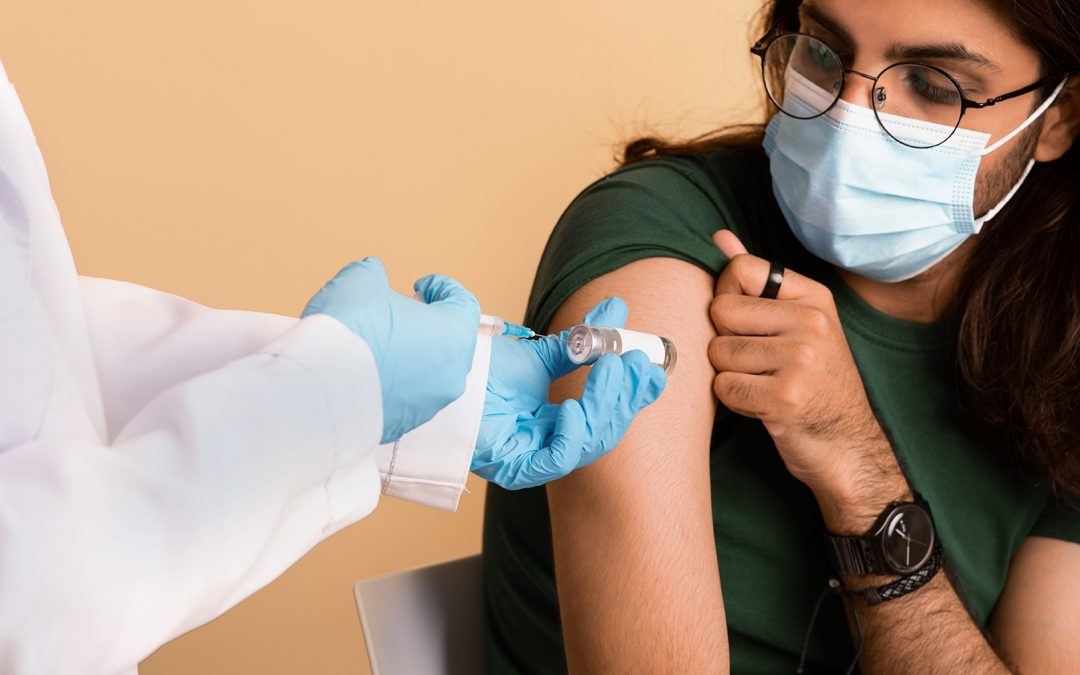by Ashley Thurow
Let’s talk about vaccines. No, today we won’t be discussing “The Virus That Shall Not Be Named.” Instead, let’s talk about vaccines that have been FDA approved for a long time—vaccines that have been proven safe, adopted worldwide, and have successfully helped us to eradicate terrible diseases such as smallpox and, almost polio; vaccines that are now a routine part of early childhood care to such an extent that we have greatly reduced previous “rites of passage” like chicken pox; vaccines that, despite all the scientific gains, have never been very popular in Colorado.
Colorado stands at the bottom of the U.S. in childhood vaccination rates. In 2017, 87.2 percent of Colorado kids were vaccinated against measles, the third lowest rate in the country. This isn’t solely an access problem. Colorado children living in poverty actually had a higher rate of measles vaccination that year at 89 percent. I’ve heard physicians compare measles outbreaks to lighting a match in a forest full of dry tinder. Forget masks. The measles’ virus is so highly contagious that it can linger in the air for two hours after a person has left the room. Ninety percent of unimmunized children that come into contact with the measles virus will contract it. According to the World Health Organization, there were “more than 140,000 measles deaths globally in 2018, mostly among children under the age of five.” Unfortunately, outbreaks are on the rise; in 2019, we saw the most measles cases in the U.S. in over 10 years, and that trend is likely to continue unless we actively do something about it.
This current pandemic has resulted in a delay in routine and preventive care. That delay was felt most acutely with children, as parents sought to protect their kids from the unknown. The CDC estimates the total vaccines administered have decreased by upwards of 22 million doses since March 2020 due to missed routine appointments that align with the childhood vaccination schedules. States like Colorado, with low vaccination rates to begin with, are at the highest risk of outbreaks. Not only are outbreaks scary from a health standpoint, but they cost us a whole lot of money. We have experienced this firsthand with the coronavirus pandemic.
Monument Health is in the business of healthcare cost containment and championing preventive care on the Western Slope. For very little cost, we have the opportunity to combat these diseases that could quickly bloat our healthcare spend by billions of dollars. According to the Colorado Children’s Immunization Coalition, each birth cohort vaccinated in the U.S. per the CDC schedule saves 33,000 lives, prevents 14 million cases of disease, and saves $9.9 billion in direct healthcare costs associated with vaccine-preventable disease.
The best part is— vaccinations are free to you! With passage of the Affordable Care Act (ACA), vaccines are fully covered by your health insurance, and readily available for free. This includes the uninsured via the Vaccines for Children (VFC) program. The associated well child visit to your primary care doctor is also free under the ACA.
Please don’t get distracted by the raging COVID-19 vaccine debate – let’s get our kids back in to their pediatricians and hop back on the CDC recommended early childhood vaccine schedule. We have enough to worry about right now without adding measles outbreaks to the mix.
Ashley Thurow is the Executive Director of Monument Health, a clinically integrated network (CIN) based in Grand Junction, CO. She is passionate about improving our healthcare system through collaboration and industry disruption and brings over a decade of experience in value-based care models to Monument Health. Ashley is a licensed CPA and holds business degrees from the University of Arizona and George Washington University. She can be reached at [email protected]

